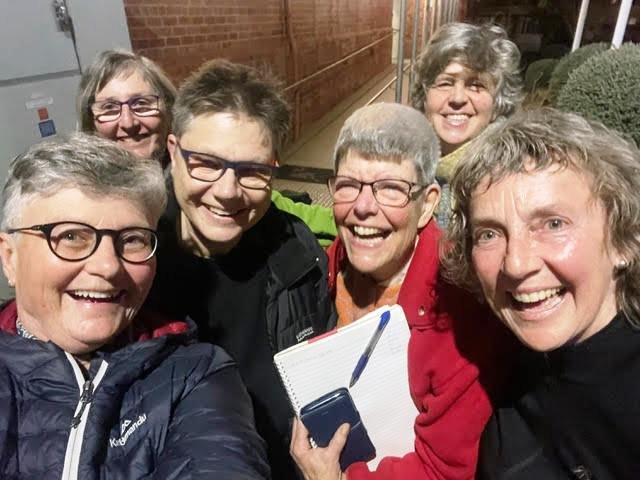A new cohousing project designed by and for older women is another step closer to being built in regional Victoria after Mount Alexander Shire Council granted a permit for the development. The project is believed to be the first of its kind in Australia.
Older Women in Cohousing Inc (WINC) initially hoped to build in Daylesford as part of the Middleton Field development or another suitable site but the cost of local development was prohibitive so the group looked elsewhere eventually settling on Castlemaine.
WINC is a community of around 40 women aged between 50 and 80 who are working together to create a solution to the cost of housing and the gap in housing affordability for older women. They are working to build a sustainable, low impact village-like setting of 31 small homes on a 5-acre (20,000m2) parcel of land in Castlemaine.
Older women are the fastest growing group of people experiencing homelessness in Australia. Women retire with lower average superannuation balances than men as result of a range of structural social and economic factors.
The gender wage gap, time taken out of the workforce for caring responsibilities, work in female dominated industries likely to be lower paid, casual and part-time employment, experiences of family violence, and gender and age discrimination in the workforce have all had an impact on the wealth accumulated by older women.
The problem is exacerbated by Australia’s lack of appropriate and affordable housing, particularly for those on low incomes, which means an increasing number of older women are left homeless. The intersection of ageism, sexism, and homophobia make older lesbians particularly vulnerable to housing insecurity.
WINC president Mary-Faeth Chenery said Mount Alexander Shire Council’s recent decision was a major milestone and the result of many years of dedicated work by WINC members and support from the group’s professional colleagues.
Anneke Deutsch OAM initiated the project in 2017, and together with Ms Chenery, they have guided the group’s progress to this stage.
Ms Chenery said the project reflected the urgent need to create new housing models and systems to help address the country’s housing crisis. She said WINC would serve as a model for other future senior developments across the country.
“WINC is being created for and by older women who want to live in a positive and vibrant community and grow old joyfully together,” Ms Chenery said.
“WINC’s unique approach uses the cohousing process to create the community and develop the design, but probably the most exciting and impressive aspect of WINC is its mixed tenure approach for providing homes.”
Ms Deutsch went on to explain that of the 31 homes, 5 were reserved for WINC members who were eligible for social housing. “These homes will be owned by a community housing provider and rented by them to the WINC members,” Ms Deutsch said.
A further 6 homes will be reserved for WINC members who are “caught in the middle” with too many assets to be eligible for social housing and too few assets to buy a home. WINC established the Middle Women Housing Fund to fill the gap between a woman’s modest assets and the price of a WINC home. Members with sufficient assets for full ownership will buy the remaining 20 homes.
Ms Chenery said one of the major challenges for older women to secure housing was that banks deemed them ineligible for mortgages due to their age. To solve this problem, nine WINC members with assets that could be freed for the purpose created a unit trust and with several other lenders assembled the funds needed to buy the land and pay for the process of getting the town planning permit.
The next steps are to contract a developer, sell the land to that company with a contract to build the planned design, buy the homes and common property off the plan with a 10% deposit and await construction.
WINC is working with community housing provider Women’s Property Initiatives (WPI) on the social housing component of the project. The government normally provides most of the funds to build social housing, but WPI and WINC are required to contribute around $600,000. Ms Deutsch said WINC had also been working on a range of solutions to be able to fund the missing portion of the Middle Women homes and had received $560,000 from philanthropic organisations. They still need more than $1 million to fund the missing equity for the project.
WINC is seeking gifts to their social housing or Middle Women Housing Fund. WINC is auspiced by a DGR registered charity, so any gifts are tax deductible if the donor wishes a receipt for that purpose. Contact Mary-Faeth Chenery (M: 0428 481 754, E: mary-faeth@winccohousing.org.au) or Anneke Deutsch OAM (M: 0427 482 976, E: anneke@winccohousing.org.au)
Women interested in WINC membership are welcome to contact Ms Chenery.
Related Stories:
Local Older Women Building the Future of Senior Housing
This article is based on a media release from WINC.





